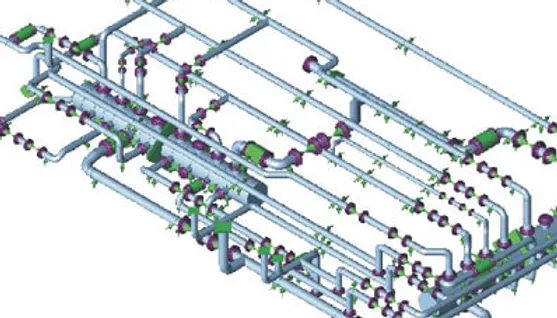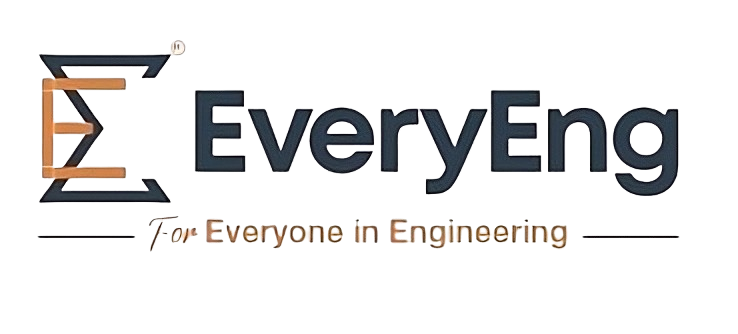
Mastering Pipe Stress Analysis using Caesar II Software (Basics to Advanced) with Certification

Anup Kumar Dey
Owner of https://whatispiping.com/
$ 500
31 already enrolled!
Advanced course for professionals
Anytime Learning
Learn from Industry Expert
Career Option Guideline

Mastering Pipe Stress Analysis using Caesar II Software (Basics to Advanced) with Certification
Trainers feedback
5
(1 reviews)
Anup Kumar Dey
Owner of https://whatispiping.com/
Course type
Watch to learn anytime
Course duration
2161 Min
Course start date & time
Access anytime
Language
English
This course format through pre-recorded video. You can buy and watch it to learn at any time.
Why enroll
This course is the most comprehensive pipe stress analysis course available in the market. By joining this course you will be able to learn all the basic concepts of pipe stress analysis. The participant will be able to learn the use of Caesar II software. All the examples used in Caesar II modeling and analysis are from actual projects, so you will have an actual understanding of the job that you will be performing in live projects.
Finally, by digesting the contents delivered through the modules you will be able to improve your skill to such an extent that you will be easily employable by various reputed organizations. Also, if you are looking for a job change, the job-hunting process will be easier for you.
Opportunities that awaits you!

Earn a course completion certificate
Add this credential to your LinkedIn profile, resume, or CV. Share it on social media and in your performance review
Course content
The course is readily available, allowing learners to start and complete it at their own pace.
Online Course on Comprehensive Pipe Stress Analysis using Caesar II Software- Basics to Advanced
28 Lectures
1541 min
Part-A: What is Pipe Stress Analysis?
Preview
57 min
Part-A: Bonus Lecture: Introduction to Pipe Stress
63 min
Part-A: Bonus Lecture: Pressure Stresses in Piping
11 min
Part B: Bonus-Large Storage Tank nozzle evaluation on CaesarII based on API650
38 min
Part B: Pump Piping Stress Analysis Part 1
126 min
Part B: Pump Piping Stress Analysis-Part 2
88 min
Part B: Pump Piping Stress Analysis-Part 3
129 min
Part B: Pump Piping Stress Analysis-Part 4
114 min
Part B: Pump Piping Stress Analysis-Final Part
89 min
Part B: API610 Pump nozzle evaluation using CaesarII
16 min
Part D: Jacketed Piping Stress Analysis
51 min
Part D: Create Unit and configuration file in CAESAR II
10 min
Part D: ASME B31J for improved Method for i, k Calculation in Caesar II
37 min
Part D: Discussion about certain question and answers on pipe stress analysis
82 min
Part D: Questions and Answers
58 min
Part D: Questions and Answers-Final Part
55 min
Part D: GRE Stress Envelope-Part1
23 min
Part D: GRE Stress Envelope-Part2
23 min
Part D: GRE Stress Envelope-Final Part
28 min
Part D: An Overview of Pipe Stress Analysis-A detailed study
258 min
Part D: Additional Resources-Material Stresses in Piping
7 min
Part D: Additional Resources-Radial Stresses in Piping
8 min
Part D: Additional Resources-Forces and Moments in Piping
6 min
Part D: Additional Resources: Stress vs Strain
8 min
Part D: Additional Resources-Mohr's Circle & Principle Stresses
10 min
Part D: Additional Resources-Secrets Behind Caesar II-Theory and Calculations
16 min
Certain basics of HDPE Pipe Stress Analysis
105 min
Trunnion Support Design in Caesar II
25 min
Some More useful Resources
20 Lectures
620 min
Fiberglass and Steel Piping: Differences in Engineering
75 min
PIPING SPRING HANGER CONCEPT
37 min
Types of Pipe Stresses
79 min
Stress Intensification Factor (SIF) & Sustained Stress Index (SSI)
46 min
Air Cooler Modeling on Caesar II
10 min
Pump Station Piping Design and Stress Analysis
9 min
A brief about Reboiler Piping Stress Analysis
7 min
Gas Outlet Piping Stress Analysis
8 min
Air-Cooled Heat Exchanger Piping
9 min
Solving vibration problems in a two-phase flowline
82 min
Analysis of Surge Problems with CAESAR-II and BOS-fluids
62 min
Integration for Productivity with CAESAR II & CADWorx
53 min
CAESAR II UNDERGROUND PIPE STRESS ANALYSIS
32 min
Flange calculations according to EN 1591-1
61 min
Spring Supports in Piping Design
11 min
Mechanism of variable spring hanger
4 min
Mechanism of constant spring hanger
5 min
How to install Spring Support at site
7 min
How to select spring hanger - for piping engineers
14 min
Internals of variable spring hanger
9 min
Course details
Please note that due to certain technical problems, the course is renamed and full content is moved to a new link as follows: https://www.everyeng.com/learn/96aa8069/advanced-pipe-stress-analysis-for-beginners-layout-materials-and-construction-professionals
Whoever had enrolled in this course has already given access to the above new link. Kindly check at your end and confirm.
The main objective of this course is to help you upgrade your knowledge to such an extent that you can feel yourself as an advanced pipe stress engineer. This course will cover all the basic concepts, and theories, in a simple way. The course will be divided into 4 parts.
Part A will cover the basic theories that are required to analyze stress systems using software programs. This section will prepare you to work as a pipe stress engineer.
Part B will cover the static analysis methodologies of the piping system in Caesar II software. This section will explain various modeling techniques, analysis methodologies, nozzle load qualification, and other required details.
Part C will cover the dynamic analysis philosophies and explain some of the dynamic modules of Caesar II.
Part D will explain some other details that are required for becoming an advanced pipe stress engineer.
So, overall, the course will cover the maximum of the pipe stress analysis methodologies in great extent. Please be patient as the course is going to be very long as it will clear most of your doubts. Even it will prepare you for your upcoming interviews by answering some of the questions.
Additionally, All participants will get 2-hours of doubt clearing session directly with the mentor.
Course suitable for
Oil & Gas Chemical & Pharmaceutical Energy & Utilities Mechanical Piping & Layout
Key topics covered
Please note that due to certain technical problems, the course is renamed and full content is moved to a new link as follows: https://www.everyeng.com/learn/96aa8069/advanced-pipe-stress-analysis-for-beginners-layout-materials-and-construction-professionals
Whoever had enrolled in this course has already given access to the above new link. Kindly check at your end and confirm.
Part A: Basics of Pipe Stress Analysis
What is Pipe Stress Analysis?
Stress Critical Line List Preparation with Practical Case Study
Inputs Required for Pipe Stress Analysis
Basics of ASME B31 3 for a Piping Stress Engineer
ASME B31.3 Scopes and Exclusions
Why stress is generated in a piping system
Types of Pipe Stresses
Pipe Thickness Calculation
Reinforcement Requirements
ASME B31.3 Code Equations and Allowables
Introduction to Pipe Supports
Role of Pipe Supports in Piping Design
Types of Pipe Supports
List of Pipe Supports
Pipe Support Span
How to Support a Pipe?
Pipe Support Optimization Rules
Pipe Support Standard
Support Engineering Considerations
What is a Piping Isometric?
What is an Expansion Loop?
Bonus Lecture: Introduction to Pipe Stress
Bonus Lecture: Pressure Stresses in Piping
Part-B: Static Analysis in Caesar II
Introduction to Caesar II
Getting Started in Caesar II
Stress Analysis of Pump Piping System
Creating Load Cases
Wind and Seismic Analysis
Generating Stress Analysis Reports
Editing Stress Analysis Model
Spring Hanger Selection and Design in Caesar II
Introduction
Types of Spring Hangers
Components of a Spring Hanger
Selection of Variable and Constant Spring hangers
Case Study of Spring Hanger Design and Selection
Certain Salient Points
Flange Leakage Analysis in Caesar II
Introduction
Types of Flange Leakage Analysis and Background Theory
Case Study-Pressure Equivalent Analysis
Case Study-NC Method
Case Study-ASME Sec VIII method
Stress Analysis of PSV Piping System
Introduction
PSV Reaction force Calculation
Applying PSV Reaction force
Practical Case Study
Certain best practices
Heat Exchanger Pipe Stress Analysis
Introduction
Creating Temperature Profile
Modeling the Heat Exchanger
Nozzle Load Qualification
Practical Case Study
Methodology for shell and tube inlet nozzle stress analysis
Vertical Tower Piping Stress Analysis
Introduction
Creating Temperature Profile
Equipment Modeling
Modeling Cleat Supports
Skirt temperature Calculation
Nozzle Load Qualification
Practical Example
Storage Tank Piping Stress Analysis
Introduction
Reason for Criticality of storage tank piping
Tank Settlement
Tank Bulging
Practical example of tank piping stress analysis
Nozzle Loading
Pump Piping Stress Analysis
API610 Pump nozzle evaluation using Caesar II
Part C: Dynamic Analysis is Caesar II
Introduction-Dynamic Analysis in Caesar II
Types of Dynamic Analysis
Static vs Dynamic Analysis
Dynamic Modal Analysis
Equivalent Static Slug Flow Analysis
Dynamic Response Spectrum Analysis
Part D: Miscellaneous other details
WRC 297/537 Calculation
What is WRC 537 and WRC 297
Inputs for WRC Calculation
WRC Calculation with Practical Example
Underground Pipe Stress Analysis
Jacketed Piping Stress Analysis
Create Unit and configuration file in CAESAR II
ASME B31J for improved Method for i, k Calculation in Caesar II
Discussion about certain Questions and Answers
GRE/FRP Pipe stress analysis
GRE Pipe Stress Analysis using Caesar II
GRE Stress Analysis-Basics
FRP Pipe Stress Analysis Case Study
GRE Flange leakage Analysis
Meaning of Stress Envelope; Understand it
Reviewing A Piping Stress System
Introduction
What to Review
Reviewing Steps
Case Study of Reviewing Pipe Stress Analysis Report
Reviewing Best Practices
FIV Study
Flow Induced Vibrations-Introduction
What is Flow Induced Vibration
Flow Induced Vibration Analysis
Corrective-Mitigation Options
AIV Study
Introduction
What is Acoustic Induced Vibration
Acoustic Induced Vibration Analysis
Corrective-Mitigation Options
2-hours of Doubt-clearing session with the mentor
Why people choose EveryEng
Industry-aligned courses, expert training, hands-on learning, recognized certifications, and job opportunities—all in a flexible and supportive environment.
- Industry Veteran
- Trainer Review

Anup Kumar Dey
Owner of https://whatispiping.com/
Questions and Answers
No questions yet - Be the first one to ask!
More from Same Author
- Technical Courses
- Articles
644
Online
Live courses
April 24
30 Hrs
Advanced
Online
Live courses
Interacting with trainer
777
Online
Live courses
June 30
45 Hrs
Advanced
Online
Live courses
Interacting with trainer
670
3
Online
Live courses
March 15
10 Hrs
Advanced
Online
Live courses
Interacting with trainer
Earning and Growth option in same Industry Domain
- Pre-recorded
- Online live session
- Offline
- Articles
5627
81
E-Learning
Unlimited access
E-Learning
Unlimited access
Pre-recorded videos

Md Firan Mondal
Lead HVAC Engineer | CEng, MIMechE, UK I CEng, KIVI, Europe I B.E (Mechanical) I Oil & Gas I HVAC Wind Platforms I Green Hydrogen I Blogger
$10
1022
1
E-Learning
Unlimited access
Intermediate
E-Learning
Unlimited access
Pre-recorded videos
9943
7
E-Learning
Unlimited access
Advanced
E-Learning
Unlimited access
Pre-recorded videos

Md Firan Mondal
Lead HVAC Engineer | CEng, MIMechE, UK I CEng, KIVI, Europe I B.E (Mechanical) I Oil & Gas I HVAC Wind Platforms I Green Hydrogen I Blogger
$800
More Training & Development option to expand your reach
- Technical courses
- Soft-skills courses
- Seminars
- Articles & Blogs
1555
5
Online
Live courses
December 31
160 Hrs
Advanced
Online
Live courses
Interacting with trainer
72
Online
Live courses
February 1
3 Hrs
Beginner
Online
Live courses
Interacting with trainer
590
Online
Live courses
February 21
30 Hrs
Advanced
Online
Live courses
Interacting with trainer























